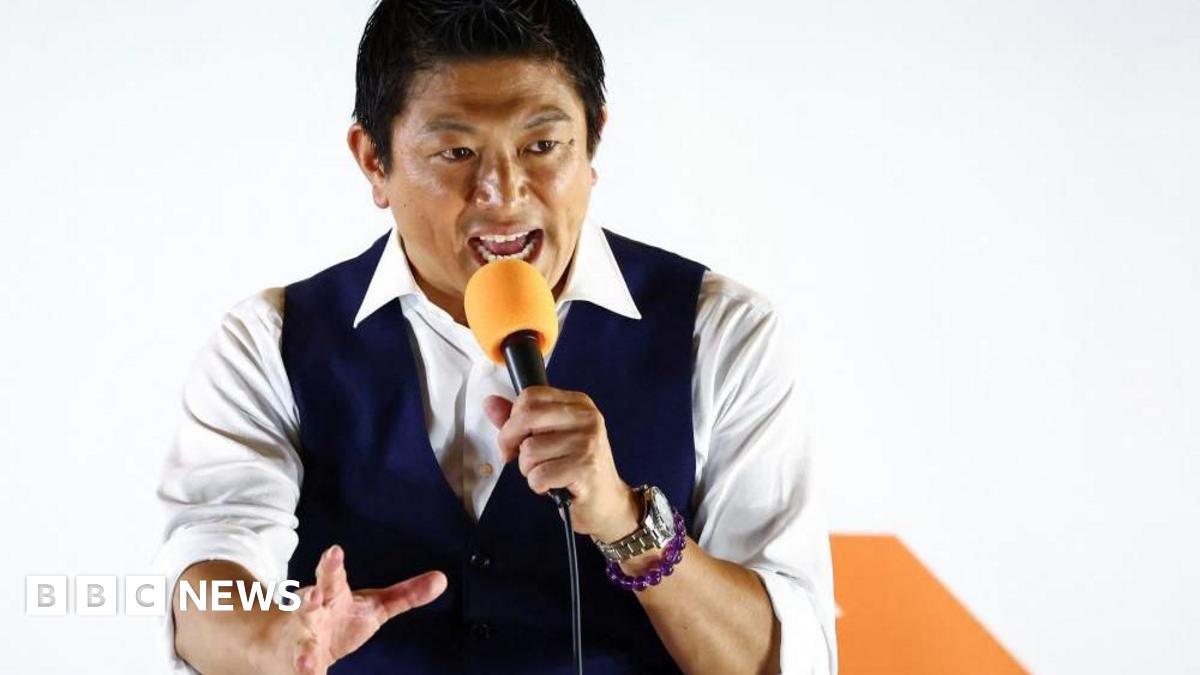T4K3.news
Sanseito wins more support in Japan's elections
Sanseito has gained ground among Japanese voters, reflecting frustrations with ruling party leadership.

Sanseito has captured Japanese voters' attention with its nationalistic views.
Sanseito gains traction among Japanese voters with nationalist message
The far-right party Sanseito, launched in early 2020, has gained significant support in Japan. It emerged as a conservative alternative with a focus on anti-globalization messages and populist policy proposals. Having won its first upper house seat in 2022, Sanseito's recent campaign highlighted concerns about a 'silent invasion' of foreigners, resonating particularly with younger conservatives. Its leader, Sohei Kamiya, has drawn parallels to Donald Trump's approach. The party's success reflects growing discontent with the ruling Liberal Democratic Party, especially among conservatives who feel their interests are overlooked. Despite gains, Sanseito remains short of the seats needed to influence budget decisions in the upper house.
Key Takeaways
"Prime Minister Ishiba is considered not conservative enough by many."
This reflects the growing divide among conservative voters disillusioned with Ishiba's leadership.
"The success of opposition parties shows that voters are sick of the status quo."
Rintaro Nishimura highlights a shift in voter sentiment against established politics.
Sanseito's rise signals a notable shift in Japan's political landscape. The party's blending of nationalist rhetoric with populist policies responds to economic grievances and cultural anxieties. Many voters are disillusioned with the Liberal Democratic Party and are turning to alternatives that promise to return to more traditional conservative values. This trend indicates a growing fragmentation in Japanese politics, suggesting that established parties need to adapt to the changing sentiments of their constituents to hold their ground.
Highlights
- Sanseito's message echoes nationwide frustrations.
- Younger conservatives are drawn to Sanseito's warnings.
- A 'silent invasion' resonates with nationalistic voters.
- Opposition parties are now a serious political force.
Political risk grows as Sanseito gains ground
The rise of Sanseito highlights a potential backlash against the ruling Liberal Democratic Party, emphasizing rising nationalist sentiments among voters. This change could complicate Japan's political landscape and policy-making processes.
As Sanseito grows, the political balance in Japan may continue to shift.
Enjoyed this? Let your friends know!
Related News

Japan's ruling coalition predicted to lose upper house control

Japan's ruling coalition may lose majority in critical election

Shigeru Ishiba's coalition loses majority in Japan's upper house

Japan votes in key election for Ishiba

Japan sets up task force to manage foreign resident concerns

Japan sets up task force to address foreign resident issues

Sanseito party gains significant seats in Japan elections

Taiwan's KMT faces recall vote that may redefine its future
